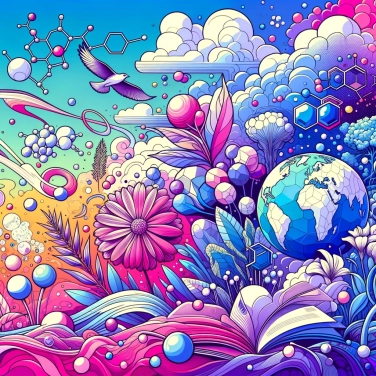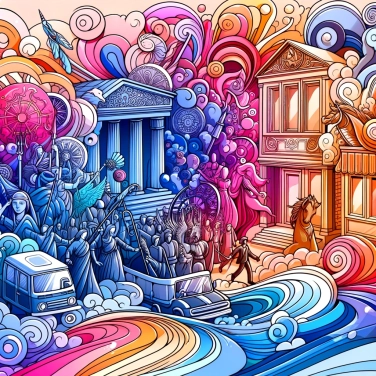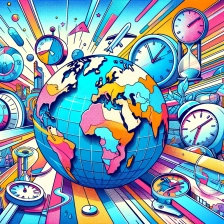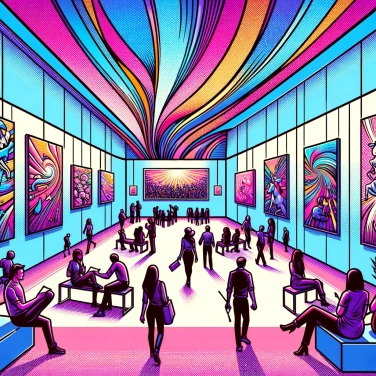In detail, for those interested!
Why are scenarios based on real facts?
Writers draw inspiration from real events to create captivating and realistic stories. This approach allows them to give credibility to their works and reach a wider audience. By relying on authentic events, writers can bring depth and an additional dimension to their characters and plots. Furthermore, basing a script on real facts can generate interest from the public by offering them immersion in a familiar world or introducing them to unknown aspects of reality. Films based on real events often have a stronger emotional impact on the audience, as these real stories resonate with everyone's lived experiences. By addressing authentic subjects, scripts can evoke intense emotions and provoke deep reflections in viewers. Lastly, using real facts allows filmmakers to save time and research. Instead of creating an entirely fictional universe, they can draw inspiration from existing situations and contexts, simplifying the pre-production phase and ensuring better narrative consistency. In conclusion, basing scripts on real events offers numerous advantages to content creators, ranging from authenticity to emotional impact, as well as time and research savings.
Authenticity and credibility
Scenarios based on real facts bring authenticity and credibility that strengthen the impact of the story on the audience. By relying on authentic events, films gain depth and realism. Viewers are more likely to immerse themselves in the story and become attached to the characters because they can feel closer to real or historical situations. This authenticity also enhances the emotional connection of the audience with the film, as real events often have a special resonance and can evoke intense feelings.
When a film is based on real facts, it benefits from a certain credibility with the audience. Viewers are more inclined to believe what they see on screen because they know the story is rooted in reality. This can help strengthen audience engagement and provoke more intense reactions. Furthermore, authenticity and credibility add an extra dimension to the film by giving it a certain artistic and cultural legitimacy.
By using real facts as a backdrop, screenwriters and directors can create captivating and rich stories, nourished by reality and tinged with authentic emotions. This combination of factual elements and artistic creativity allows for the production of powerful and memorable cinematic works, capable of reaching a wide audience and sparking deep reflections. Authenticity and credibility are thus major assets in the construction of a strong and impactful screenplay.
Emotional impact
Films based on real events have a powerful emotional impact on the audience. By telling authentic stories inspired by reality, these films can evoke intense emotional reactions from viewers. For example, dramas based on real events such as historical tragedies or poignant individual destinies can deeply touch the audience by allowing them to identify with the characters and situations experienced.
The authenticity of real events is a key element in creating a strong emotional connection. Viewers can feel empathy, compassion, anger, or even joy in the face of the trials and triumphs of real characters or those inspired by authentic events. This empathy enhances the audience's immersion in the story and allows them to experience intense emotions throughout the film.
Furthermore, the emotional impact of films based on real events can lead to deep reflection on social, political, or moral issues. By highlighting authentic events and placing them in their historical or contemporary context, these films can spark debates, raise questions, and encourage the audience to challenge their own opinions and beliefs.
In short, the emotional impact of films based on real events lies in their ability to evoke intense emotions, create a deep connection with the audience, and stimulate reflection on important themes. These films go beyond entertainment by offering an immersive and enriching cinematic experience based on authentic and emotionally impactful elements.
Time and research savings
Film scenarios based on real events offer advantages in terms of time and research savings. By using real events as a basis, screenwriters already have some of the research work on facts and complex details done for them. This allows them to focus more on character development and plot, rather than on the accuracy of historical or real events.
Furthermore, by drawing inspiration from real facts, screenwriters can also save time in terms of conceptualizing the story. Historical or real events often provide captivating narrative arcs and natural dramatic elements that can be used to create a compelling story. Screenwriters do not need to entirely reinvent the wheel, which speeds up the script creation process.
In summary, basing a screenplay on real events allows screenwriters to save time and energy in terms of research and narrative development. This provides them with a solid foundation from which to create a captivating and authentic story for the big screen, while ensuring a certain level of realism and credibility.
![Explain why some countries change time zones?]()
![Explain why Alexander the Great refused to wear shoes.]()
![Explain why Alexander the Great always wore an impressive helmet.]()
![Explain why the last Chinese emperor was so young when he came to power?]()





















